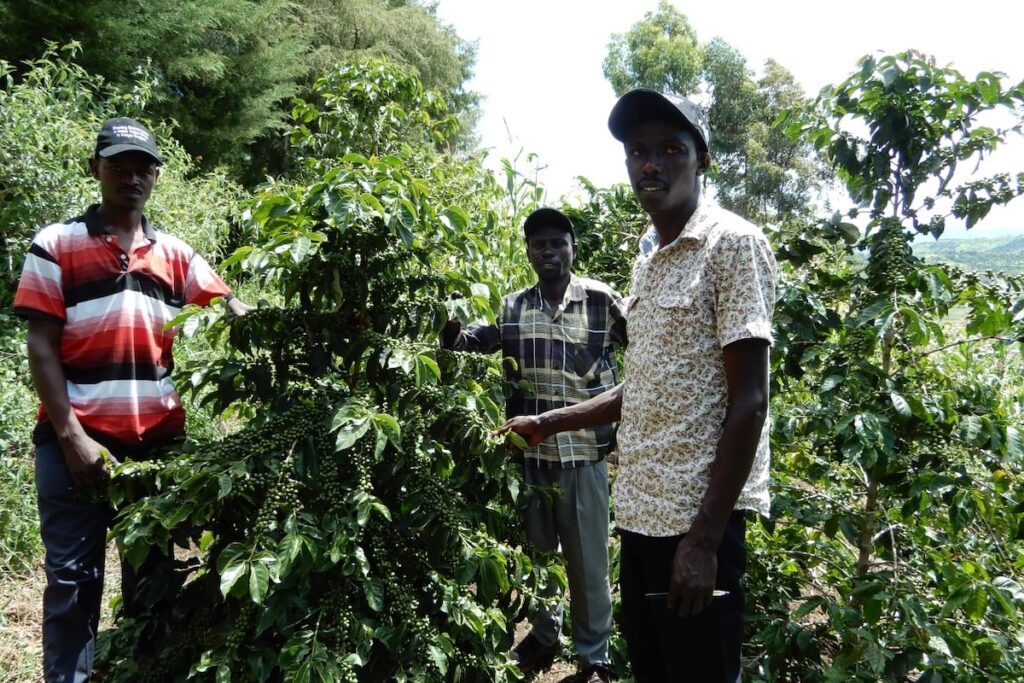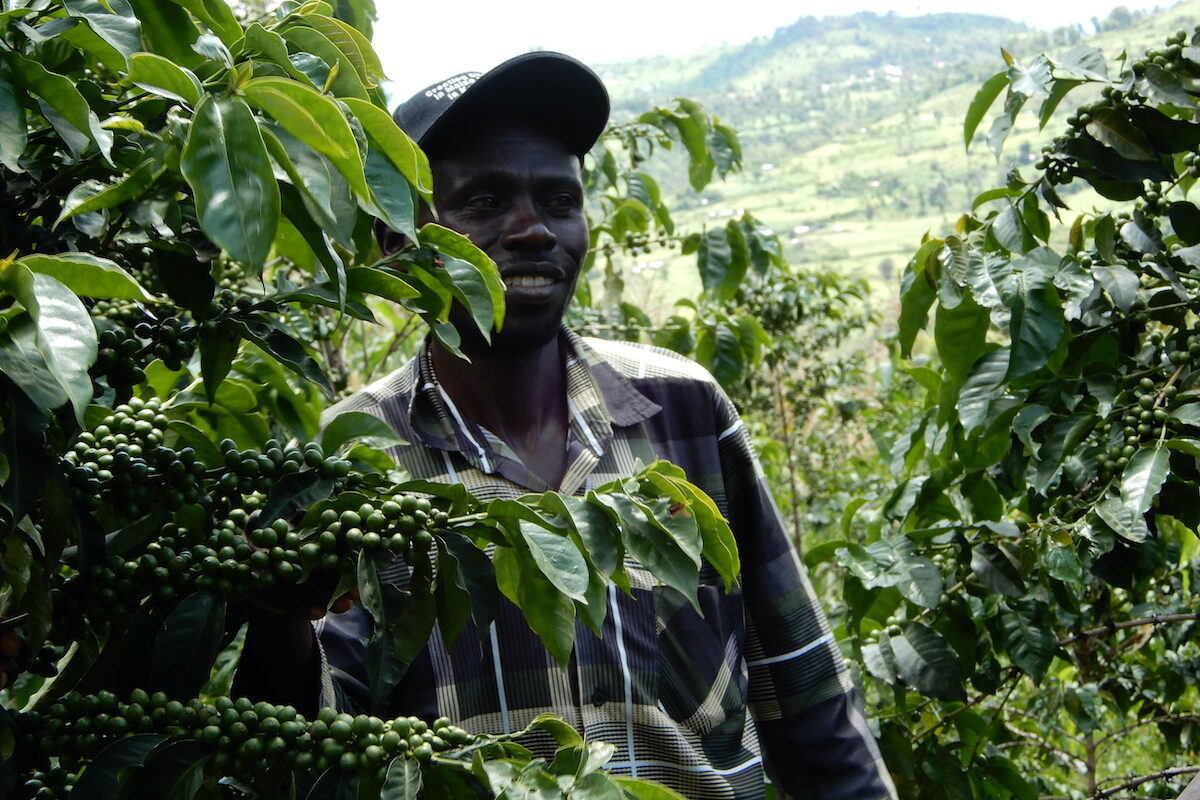Richard Rono cares for his coffee farm in Kenya.
Coffee is an important cash crop for many farmers in Kenya, but production has been waning since 1988 when the country produced 128,862 metric tonnes of coffee. By 2021, production had declined to 36,873 metric tonnes.
While many factors have contributed to the decline in production, the rapidly changing climate has had the largest impact. Kenyan farmers rely on rainfall for water for nearly 98 percent of their overall agricultural output. Unfortunately, the increased variability of rain due to climate change has made this type of agriculture increasingly unsustainable.
This is the case for Richard Rono, a 49-year-old farmer from Kapkawa village in Kericho County, Kenya. Richard, his wife and their four children rely on predictable rainfall to nurture coffee and other crops on their small farm, but in 2017 erratic rainfall had a dramatic impact on his income, and in the aftermath hunger became a threat to his family. In addition to difficult meteorological conditions, the increasing cost of farm inputs, an outbreak of coffee leaf rust, and growing pressure from developers have dramatically reduced their income.
Nonetheless, Richard has not lost hope. In his efforts to adapt to the reduced rainfall in his area, Richard became an active participant in Solidaridad’s Traceable Organic Coffee from Kenya project (TRACE Kenya). He has now adopted and implemented organic agricultural practices in an effort to reduce input costs, increase quality and secure a bountiful future coffee harvest.
Through Solidaridad’s TRACE Kenya project, I am now a lead farmer in organic coffee farming.
Richard rono
The TRACE Kenya project provides technical assistance and promotes sustainable agricultural methods to develop an organic-certified coffee supply chain for farmers in Kenya’s Bungoma, Kericho, and Nandi counties.
Richard describes the benefits of the TRACE Kenya programme like this: “A change of scenery is good for the mind. When Solidaridad brought me on a field exchange visit in Nyeri, I was clueless about the amount of knowledge I would carry home with me. Seeing other coffee farmers harvesting up to 21 kilos per tree while I struggled to harvest 2 kilos per tree motivated me to develop a better coffee management approach.”
The Traceable Organic Coffee from Kenya project (TRACE Kenya)
The TRACE Kenya project, in collaboration with the Coffee Research Institute (CRI), has helped Richard successfully adopt organic farming practices, including effective pruning, compost production, and the use of liquid fertilizers. As a lead farmer, Richard trains farmers in Kamachungwa, a neighboring village, in these healthy agricultural techniques.

I did not know how to generate organic manure before. Solidaridad has taught me how to apply and manage compost manure properly. Making compost manure is trouble-free – all raw ingredients are found on the farm, such as banana leaves, maize waste, cow dung, chicken waste, and Tithonia diversifolia (an effective compost accelerator).
Richard Rono
TRACE Kenya encourages coffee farmers to embrace climate-smart strategies, like manufacturing liquid fertilizers, worm composting, recycling wastewater, planting more resistant coffee varieties, as well as grafting to improve plant stock.
Farmers also learn about agroforestry practices, such as intercropping coffee bushes with avocado trees. The intercropping along with mulching practices have helped protect the stems of Richard’s coffee bushes from intense heat during the rainy season. The avocado trees also contribute to a healthier microclimate and improved soil conditions.
The practices have also helped Richard deal with pests and infestations more effectively. Prior to his participation in the project, 40 percent of his coffee bushes were affected by Coffee Berry Disease and Leaf Rust. However, the new farming techniques have equipped him to quickly identify and control diseases.
Besides improving their farm management techniques, Richard and other Kenyan coffee producers are aiming to enhance production of high-quality seedlings, which will ensure an adequate harvest in the absence of certified seeds. This strategy is expected to boost both seed germination and crop survival rates.
Richard Rono is no stranger to the growing impact of climate change. While erratic rainfall has threatened his coffee farm, his response has inspired nearby farmers. With his participation in Solidaridad’s TRACE Kenya programme, Richard has adapted his farming techniques and embraced organic agriculture to ensure his farm and his family continues to flourish.

